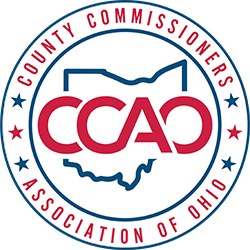Complete Story
10/27/2023
Issue Spotlight: Property Tax Reduction Factors
At CCAO, we are continually looking to educate our members on key issues being discussed in the state. The goal of Issue Spotlight is to concentrate on an issue that will be discussed in the legislature and provide our members with information and talking points to assist with your advocacy efforts.
In the Issue Spotlight series on property tax thus far, we’ve discussed basic property tax definitions and the authority that boards of county commissioners have to rollback the county’s inside millage, if certain conditions are met. This week, we will discuss an important mechanism in Ohio’s property tax system but one that is not always well-understood: property tax reduction factors.
In 1976, the General Assembly passed House Bill 920 which, among other provisions, created the system of tax reduction factors. This rule was placed in the Ohio Constitution in 1980 (Article 12, Sec. 2a). The general theory behind reduction factors is that property owners should not see their property taxes increase too much due to increases from reappraisals or triennial updates to valuation. Reduction factors function by recalculating the effective millage for each voted levy to ensure it collects the same general amount of revenue as it did in the levy's prior year.
There are three important things to note about reduction factors:
- They apply only to voted levies, otherwise known as “outside millage.”
- Inside millage is unaffected.
- Tax reduction factors are calculated separated for Class 1 property (residential and agricultural) and Class 2 property (all other property, such as commercial and industrial).
- The distinction is due to the differing rates at which the two property classifications appreciate.
- They apply only to property that was taxed in the prior year.
- New property is taxed at the full voted-on millage rate for its first year.
- Despite the application of reduction factors, taxes for individual properties may increase or decrease depending on their relative rates of change in valuation compared to other properties in the taxing district.
- Since they function to keep revenue generated by a levy consistent, if property values decrease, the factors will cause the effective millage of an existing levy to increase to maintain the same revenue as when values were greater.
As an example, suppose Viking County seeks a three-mill (0.003) property tax levy to provide emergency medical services. This levy is outside the 10-mill guarantee, so the electorate must approve the levy, which it does. The table below walks through a hypothetical where the taxable value increases in both years two and three of the levy, but at different rates between Class 1 and Class 2, and through different means (appreciation in year two and new builds in year three).
This sample table is an exaggerated simplification for illustrative purposes. For more information on property tax reduction factors, please consult CCAO Handbook Chapter 14: Local Property Taxes.
Issue Spotlight originally appears in Statehouse Report. If you would like to subscribe to Statehouse Report, you may do so here. You may also complete this form if you would like to suggest a topic for a future Issue Spotlight.




